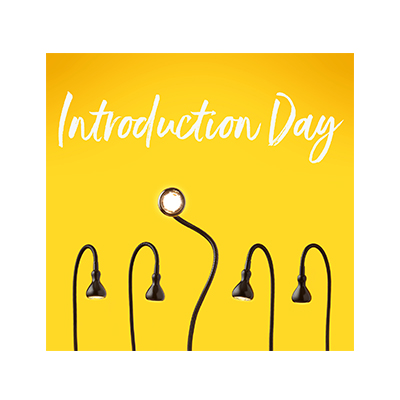Interview with Supervising Hoffman teacher & psychotherapist, Simon Matthews
Simon, a former businessman, did the Hoffman Process in 2003 and found it so beneficial that he went on to train firstly as a psychotherapist and then in parallel as a Hoffman teacher. His own family history has made him very aware of the specific problems faced by people with bi-polar, a disorder which affects 1% of the population worldwide. Here he talks about the symptoms and different ways of treating it.
What is Bi-polar..?
 Bi-polar disorder, which used to be commonly known as manic depression, is essentially depression characterised by periods of elevated moods. How far someone’s behaviour may change during a hyper or manic state can vary from feeling completely invincible and sure they’re right, to believing they’re God. They may lose all sense of appropriate boundaries, feel extremely irritable, begin to spend excessively or indulge in promiscuous sexual behaviour. However, this can also mark a phase of highly creative output and the production of exceptional spiritual imagery. Experts looking at the lives of some of the greatest artists, poets and composers have concluded that some, such as Mozart, Beethoven, William Blake, Sylvia Plath, Michelangelo and Van Gogh, were very probably bi-polar. When someone is in a manic or hyper phase it can be difficult to deal with because they need someone looking after them who will remind them of boundaries at a time when they cannot bear to feel limited. They then tend to cycle into a depressed phase during which they may, at times, feel suicidal.
Bi-polar disorder, which used to be commonly known as manic depression, is essentially depression characterised by periods of elevated moods. How far someone’s behaviour may change during a hyper or manic state can vary from feeling completely invincible and sure they’re right, to believing they’re God. They may lose all sense of appropriate boundaries, feel extremely irritable, begin to spend excessively or indulge in promiscuous sexual behaviour. However, this can also mark a phase of highly creative output and the production of exceptional spiritual imagery. Experts looking at the lives of some of the greatest artists, poets and composers have concluded that some, such as Mozart, Beethoven, William Blake, Sylvia Plath, Michelangelo and Van Gogh, were very probably bi-polar. When someone is in a manic or hyper phase it can be difficult to deal with because they need someone looking after them who will remind them of boundaries at a time when they cannot bear to feel limited. They then tend to cycle into a depressed phase during which they may, at times, feel suicidal.
Treatments Available
Whereas in some cultures people cycling through such emotional extremes may be seen as a visionary, mystic or shaman, here in the west those with bi-polar tend to be referred to a psychiatrist. In the past, when fewer drugs were available, they may been treated more therapeutically but now, in my experience, psychiatrists seem to work mainly by medicating the condition in an attempt to manage the symptoms. Unfortunately patients on such medication can sometimes feel that they lose touch with their feelings, their creativity and their sense of identity.
There has been an explosion of people diagnosed with bi-polar in the last 30 years which has parallelled the increased use of anti-depressants and SSRIs. Such drugs flood the brain with Serotonin. We all naturally produce this ‘feel-good’ chemical but some of us have difficulty keeping the levels balanced. These drugs can help many people with depression but others may find them too stimulating and it has been suggested that they may trigger a manic episode.
Complementary Treatments
I personally believe that there’s a place for medication in the short term to bring someone down from a high or to bring them up from a deep depression because when they are in either of those states it’s difficult to engage with them in a meaningful way. I help patients to recognise the signs that they are moving into an extreme state whether that’s into mania – for example talking or drinking too much, not getting enough sleep – or into depression – for example withdrawing and suppressing their feelings. Once they get too far into these states they can become unreachable, so it’s important to teach them to recognise the signs and to have a plan in place to correct the imbalance. So for example if they are becoming manic they need to do grounding activities such as meditation or walking in nature but if they are slipping into depression visualisations can be helpful, as well as spending time with people who remind them who they are and with whom they can share their feelings. I also find that CBT (Cognitive Behavioural Therapy) can be very useful in raising their awareness of sudden changes in mood, thoughts or behaviour that can be signals to take action.
Addictions and Bi-polar
I feel that many addictions result from an attempt to avoid an original pain which we feel unable to process. For example if an issue with our partner is triggering memories of a difficult childhood experience, and we don’t know how to deal with it, we may watch too much TV or overwork in an attempt not to think about it. My sense is that bi-polar is an extreme version of this, where we’re so desperate to avoid the original pain that we try every addictive behaviour at once to excess and then fall into depression. This unconsciously keeps the attention on dealing with the destructive behaviour rather than having to face the initial trigger.
Taking Control
Yet I believe that far from being victims of our genetic heritage we do have the power within ourselves to interpret our own DNA. That’s where education that helps us understand ourselves and our reactions such as the Process can be so important in helping us take control. I’ve known people with bi-polar do the Process who have found it very helpful. The Hoffman enrolment team screen and monitor all participants carefully beforehand for triggers and ensure that they are robust enough to cope with the course. My message to anyone with bi-polar is that it doesn’t have to be a life sentence and it really is worth dealing with your ‘stuff’. www.bipolartherapy.co.uk
Liz McElligott – Chief Executive of The National
Counselling Society
 The National Counselling Society is a nonprofit organisation which was first established in 1999 by a group of counsellors, psychotherapists, hypnotherapists and psychologists. They have been acknowledged as having an important role to play in counselling in the UK. Chief Executive and Hoffman graduate Liz McElligott, gives her view on how counselling can help with mental health.
The National Counselling Society is a nonprofit organisation which was first established in 1999 by a group of counsellors, psychotherapists, hypnotherapists and psychologists. They have been acknowledged as having an important role to play in counselling in the UK. Chief Executive and Hoffman graduate Liz McElligott, gives her view on how counselling can help with mental health.
‘Any form of mental illness can be devastating to both the individual and their family. When someone is affected by a condition such as bipolar it touches the lives of all those they are close to, requiring support and understanding. One of the strong messages that the Hoffman Process gives us is the value of loving relationships with family and friends, which can be key in coping with such situations. The treatment to ‘cure’ the condition may mean that the person we know and love becomes a stranger – their entire way of relating to life may change – bipolar clients often say that they miss some of the ‘highs’ of the condition.
Depression, which is the predominant state of bi-polar disorder and a very common condition in its own right, can be very lonely both for the sufferer and their loved ones – like ripples in a pond one person’s condition can touch the life of those around them, so allowing yourself to reach out for support whether you’re a loved one or a carer or both, is a vital part of self-care.
Counselling can play an important role as a way of nourishing your emotional and spiritual self, ensuring that you in turn have the inner resources to care for yourself as well as your loved ones. Do not try to do it alone – talking about your feelings such as anger, sadness or guilt with an impartial person will help you to cope with the ‘highs and lows’.
To find a counsellor, to train in counselling, to register as a counsellor or to read more about how counselling can help, visit: www.nationalcounsellingsociety.org/
Interviews with Nikki Wyatt






 Sign up to receive monthly newsletters from Hoffman
Sign up to receive monthly newsletters from Hoffman